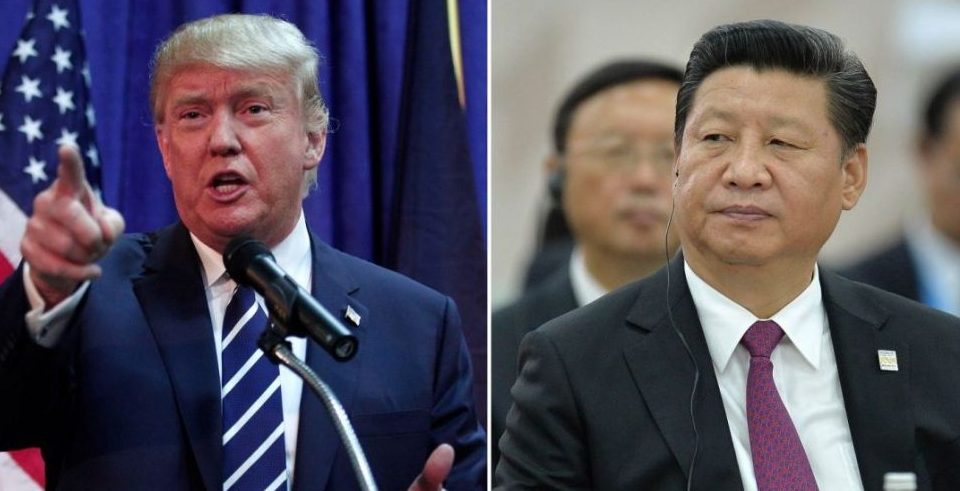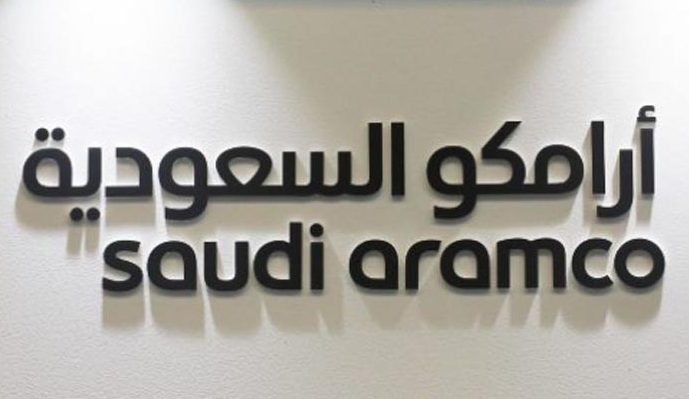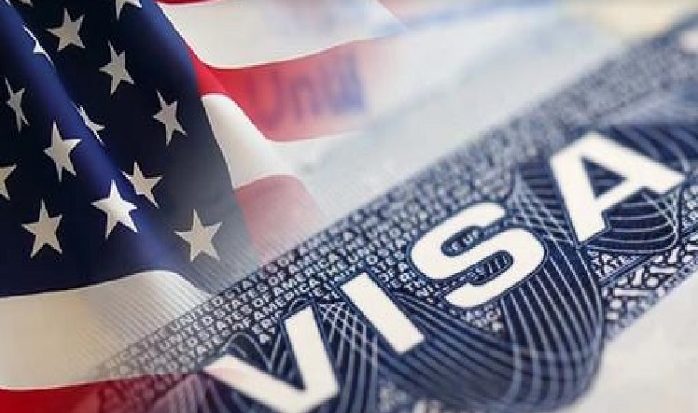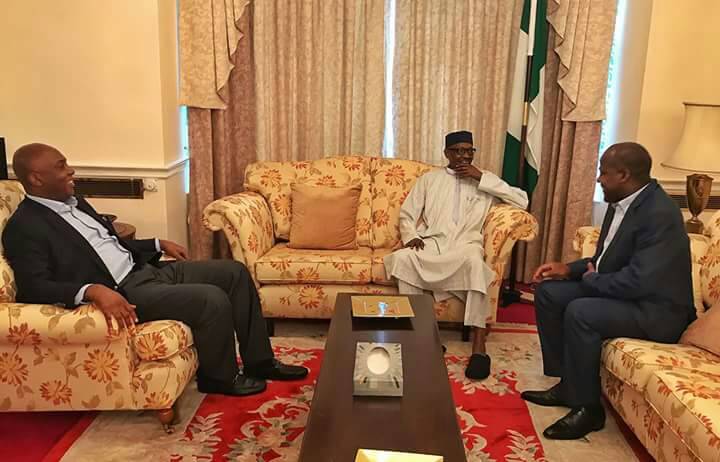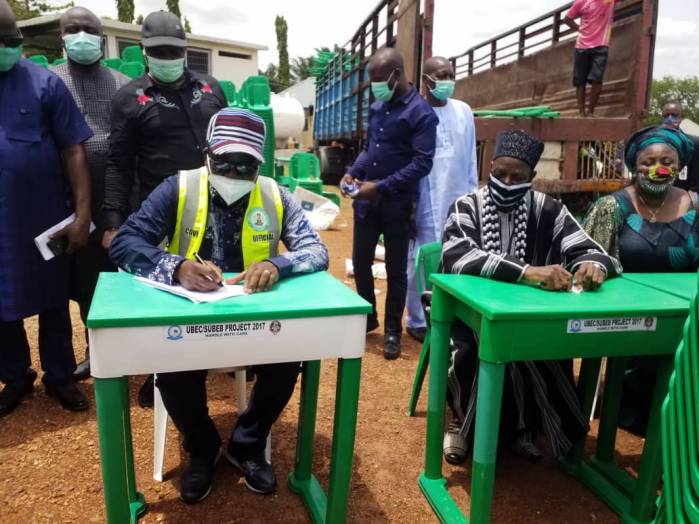New US tariffs on $16bn (£12.4bn) of Chinese goods have come into effect in an escalation of their trade war.
A total of $50bn worth of imports will now be taxed by this second round, raising expectations that China will retaliate.
Since the opening salvo in July, tensions between the world’s two largest economies have worsened, hurting their companies and economies.
Officials from both countries are holding talks in Washington, but hopes are not high they will bring a breakthrough.
The new US tariffs came into effect at 12:00 Beijing time (05:00 BST).
The 25% tax will affect nearly 280 Chinese goods, including chemical products, agricultural equipment, motorcycles and antennas.
The move completes the series of tariffs on $50bn of Chinese goods the US initially set out to tax.
China has warned it will once again retaliate with its own 25% tariff on $16bn of US goods including coal, medical instruments, cars and buses.
Washington’s second round of tariffs comes despite testimony to the US Trade Representative’s Office by dozens of American companies and industry groups.
Many said the new tax would hurt their businesses and warned that they would not be able to absorb another tax without raising prices for US consumers.
However, the $16bn is a drop in the ocean compared to the amount Donald Trump has flagged could be hit.
The president said in July he was ready to tax all of the $500bn worth of Chinese imports into the US.
The US has threatened a third round of tariffs on an additional $200bn of Chinese goods and they could come as soon as next month.
It has since said those products could be hit with a 25% levy – more than double the 10% originally planned.
China has said it would respond with another tariff on $60bn of US goods.
But it would be harder for Beijing to match the US threat because its manufacturers export far more products than American businesses send to China.
The US Trade Representative’s Office is holding hearings this week on the likely impact of more tariffs.
China has previously accused the US of “unilaterally” heightening tensions between the two economic giants.
There are signs the trade war is already having an impact.
Major car makers recently warned that changes to trade policies were hurting performance.
The International Monetary Fund said last month an escalation of the tit-for-tat tariffs could shave 0.5% off global growth by 2020.
Mollie Tibbetts murder: Suspect ‘forgot dead jogger in car’
A Mexican immigrant accused of murdering Iowa student, Mollie Tibbetts, claims to have no memory of her death.
Cristhian Bahena Rivera, 24, confessed to following the 20-year-old during her evening run five weeks ago.
He said he “got mad” when she threatened to call 911, but cannot recall what happened next, police say.
President Donald Trump has blamed US immigration laws for Ms. Tibbetts’ death, but the accused’s lawyer said his client was in the US legally.
The body of Ms. Tibbetts, who went missing on 18 July, was discovered by investigators on Tuesday after they were led to the scene by Mr. Rivera.
Police say the suspect was living in the US illegally and had resided in the area around Ms. Tibbetts’ hometown of Brooklyn, Iowa, for at least four years.
But Mr. Rivera’s farm employers said he had passed an immigration background check.
On Wednesday, Mr. Trump addressed the case in a video message posted on Twitter in which he attacked US immigration laws as “strictly pathetic.”
“A person came in from Mexico illegally and killed [Ms. Tibbetts] – we need our immigration laws changed, we need our border laws changed,” he said.
“We have the worse laws anywhere in the world,” he added, before appealing for funding to erect a wall along the US-Mexico border.
According to a criminal complaint, Mr. Rivera has admitted observing Ms. Tibbetts during her evening run while dog-sitting for her boyfriend.
Camera images had captured Mr. Rivera’s black Chevy Malibu “driving back and forth” near the scene where she vanished, according to the affidavit.
Under police questioning, he admitted following her in his car, before getting out and running “behind and alongside” her, police say.
The accused told police he panicked after she threatened to call police.
He said he “blocked” the memory of what happened next, “which is what he does when he gets very upset,” according to the charging document.
His memory supposedly returned as he was back behind the wheel of his car.
He said he noticed a headphone earpiece in his lap, which is “how he realised he put her in the trunk,” says the criminal complaint.
Officials say the accused then checked the boot of his car, where he saw Ms. Tibbetts’ body wearing exercise clothing and with blood on both sides of her head.
He said he dragged her 60ft (20m) into a secluded corn field, and allegedly left her body face-up and covered with corn plants.
A statement from Ms. Tibbetts’ family on Wednesday said: “Our hearts are broken.
“On behalf of Mollie’s entire family, we thank all of those from around the world who have sent their thoughts and prayers for our girl.”
It included a request from the family for privacy.
At the White House, spokeswoman Sarah Sanders called the death “an unfortunate reminder of why we need to strengthen our immigration laws.”
The White House also tweeted about the case, posting a video about family members of Americans killed by undocumented immigrants.
On Wednesday, a judge at Poweshiek County Court ordered the suspect held behind bars on a $5m (£4m) bail bond.
During the hearing, the suspect wore headphones to hear a Spanish-language translator, and answered “si” when asked if he understood the charges.
The suspect’s defence lawyer, Allen Richards, disputed official statements that his client was in the US illegally.
“Sad and sorry Trump has weighed in on this matter in national media which will poison the entire possible pool of jury members,” Mr. Richards wrote in a court document, according to the Des Moines Register.
Yarrabee Farms, where the suspect had been employed for four years, said in a statement he “was vetted through the government’s E-Verify system, and was an employee in good standing.”
READ ALSO: UN honours late Kofi Annan
Trump: Hush payments came from me but were not a campaign violation
US President Donald Trump has strongly denied using election campaign finances to make payments to two women who say he had affairs with them.
It comes after his ex-lawyer, Michael Cohen, pleaded guilty to violating laws during the 2016 presidential election over his handling of the hush money.
In a TV interview with Fox & Friends, Mr. Trump said the payments came from him personally, not from the campaign.
Earlier he accused Cohen of making up stories to receive a lighter sentence.
In an excerpt from the Fox & Friends interview, which will be aired in full on Thursday, Mr. Trump responded to questions about the hush payments by insisting that they were “not a campaign violation.”
“They came from me. And I tweeted about it. But they did not come out of the campaign,” he says, adding that he only found out about the payments “later on.”
His comments contradict a statement made earlier by Cohen under oath in which he said the president had instructed him to make the payments.
In July, Cohen released audio tapes of him and Mr. Trump allegedly discussing one of the payments before the election.
In his first public comments, back in April, about an alleged affair with porn star Stormy Daniels, Mr. Trump denied knowing about a $130,000 (£100,000) payment made to the actress via his lawyer, Cohen.
Ms. Daniels, whose real name is Stephanie Clifford, alleges that she and Mr. Trump had sex in a hotel room in 2006.
Asked by a reporter in the press cabin of Air Force One if he had any knowledge about where Cohen got the money to pay Ms. Daniels, the president responded at the time: “I don’t know.”
The following month, Mr. Trump officially disclosed a payment to Cohen of between $100,001 and $250,000 for expenses incurred in 2016.
Undisclosed payments to bury embarrassing stories about a political candidate can be treated as a violation of US campaign finance laws.
Both prosecutors and Cohen agree that Cohen violated campaign finance laws by handling the payments.
Cohen, who was Mr. Trump’s personal lawyer for more than a decade, has admitted to passing on funds to two women – thought to be Ms. Daniels and former Playboy model Karen McDougal.
On Tuesday, he pleaded guilty to eight criminal charges, including tax evasion, bank fraud and campaign finance violations.
Saudi Arabia insists it is ‘committed’ to Aramco float despite reports
Saudi Arabia has denied reports that it cancelled its plans to sell shares in state oil giant Aramco.
Reuters earlier reported that a group of financial advisers had abandoned a plan to sell 5% of the firm.
The news agency quoted a source suggesting the decision was taken some time ago but was not being announced.
Saudi Arabia’s energy minister said the government would proceed with the flotation – which has been billed as the largest ever.
“The government remains committed to the IPO [initial public offering] of Saudi Aramco at a time of its own choosing when conditions are optimum,” Khalid al-Falih said in a statement.
Mohammed bin Salman, Saudi Arabia’s Crown Prince, first proposed the share sale early in 2016 as part of his economic reform agenda, to bring Western regulation and scrutiny to the company, as well as raising cash to reduce the country’s large budget deficit.
At the time he predicted the sale would value Aramco at around $2 trillion (£1.55 tn).
The plan would see shares float on both the local stock market in Riyadh and one of the world’s leading international financial centres.
Reuters earlier said it had spoken to four senior industry sources about the plans being scrapped.
“The decision to call off the IPO was taken some time ago, but no-one can disclose this, so statements are gradually going that way – first delay then calling off,” Reuters quoted one as saying.
The wire service said financial advisers who had been working on the listing were now focusing on the proposed acquisition of a “strategic stake” in local petrochemicals maker Saudi Basic Industries, according to two of its sources.
In late 2017 rumours first emerged that the flotation might be cancelled, and it was suggested that Aramco shares might instead be sold privately to the world’s biggest sovereign wealth funds and institutional investors.
Saudi Aramco ranks as the world’s largest oil and gas business.
Forbes Magazine estimates it generates $1bn a day in revenues.
Its businesses cover management of the world’s biggest oil fields, as well as extensive refining and chemicals operations.
With stakes this high, London, Hong Kong and New York competed fiercely to host the initial public offering.
US President Donald Trump tweeted last year: “Would very much appreciate Saudi Arabia doing their IPO of Aramco with the New York Stock Exchange. Important to the United States!”
In London the Financial Conduct Authority changed its rules to make the listing easier, attracting criticism from MPs and from the Institute of Directors who said adapting regulations to accommodate Saudi Aramco could harm the UK’s reputation for good governance.
No decision had been taken on where to list the shares.
Meanwhile, there have been suggestions that some members of the Saudi royal family are concerned that a listing in New York may entail legal risks, citing US terrorism legislation that would permit US citizens to sue Saudi Arabia.
